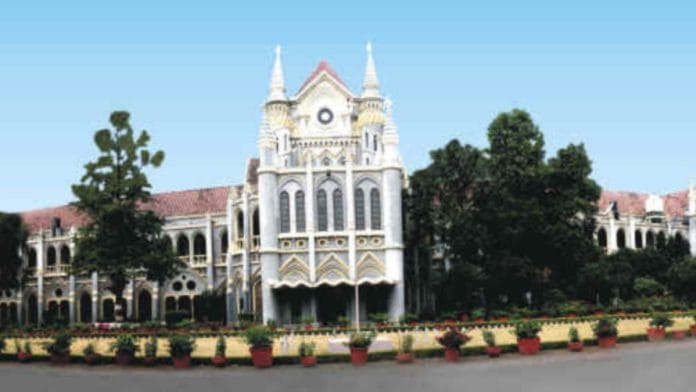Bhopal: The Madhya Pradesh High Court Monday ordered for “status quo” to be maintained on the construction of temples and shrines within police stations across the state and sought an explanation from the government. This came in response to a petition seeking the demolition of such illegal religious structures on the grounds that they violated Supreme Court guidelines.
A two-member bench of Chief Justice Suresh Kumar Kait and Justice Vivek Jain was hearing a petition by an 82-year-old advocate Om Prakash Yadav, who cited the examples of four police stations in Jabalpur with religious structures illegally constructed within the premises.
Yadav attached images of temples in Jabalpur’s Madan Mahal, Vijay Nagar, Civil Lines and Lordganj police stations and also shared a copy of his previous communication to then-Jabalpur Collector T. Ilayaraja seeking his intervention to halt the temple construction at Vijay Nagar police station.
Yadav said Jabalpur was not a one-off case and similar constructions are underway at police stations across Madhya Pradesh as they are modernised and relocated.
“The court has ordered maintenance of status quo on all under-construction structures and issued notice to the state government seeking their response,” Sateesh Verma, who represented Om Prakash Yadav, told ThePrint.
“Our contention is simply that the police station is government land and the concerned police officer is the trustee of such land. Then how can they allow the construction of religious structures that are in violation of orders issued by the Supreme Court and High Court,” he added.
The Supreme Court had in September 2009 banned the unauthorised construction of any temple, church, mosque or gurudwara on public streets or spaces across the country.
The top court directed state governments and Union territories to review such structures and take appropriate steps as expeditiously as possible. It also said the implementation of the order should be supervised by the concerned high court, which was also empowered in case of contempt of any of the orders issued by the Supreme Court.
Subsequently, the Madhya Pradesh government removed 571 unauthorised religious structures in phases by 2013. According to an affidavit submitted by the Additional Collector of Jabalpur to the High Court, the government had also planned the removal of another 32 such structures. Information on whether these were removed is not available.
Also read: MP HC orders ‘scientific survey’ of disputed Bhojshala temple-Kamal Maula mosque complex by ASI
Yadav’s petition
Yadav, a retired government employee who now practices law in Jabalpur, said the prevalence of illegal religious structures in police stations remained a concern.
In his petition, Yadav held the police accountable, saying that temples and shrines were constructed by police personnel as it was unlikely that any outsider would be able to undertake such illegal construction in the presence of police.
“Allowing such construction is a glaring example of a violation of the apex court’s order as the respondents are directly responsible for these newly mushroomed illegal constructions,” Yadav said.
“If the district magistrate, superintendent of police and concerning station house officers had been vigilant towards their duties, these constructions would not have grown in front of their eyes and honourable Supreme Court’s order would not have been violated in broad daylight,” he added.
The petition was filed in the High Court on 18 October after a legal notice sent by Yadav to the state government on 14 August, 2023, did not elicit any response.
Yadav had sought not only the removal of these structures but also action against involved officers under Madhya Pradesh Civil Service Rules to prevent future violations and ensure court orders are “implemented in letter and spirit”.
He further argued that authorities often hesitate to remove these structures because of political reasons or to appease certain sections of society. “The aforesaid conduct is unlawful, motivated, malafide and amounts to the breach of duty,” he stated,
He added that the “identification and eviction of unauthorised and illegal religious structures” from government or public land was necessary to uphold communal harmony and to “strengthen the country as a sovereign, socialist, democratic republic as enshrined in the preamble of the Constitution”.
(Edited by Sugita Katyal)
Also Read: A team of MP forest officials traced Bandhavgarh elephants’ final hours. Here’s what they found






